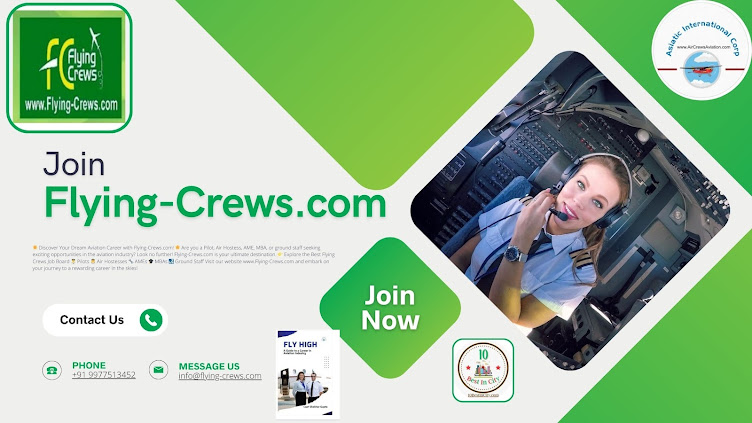Navigating the Path to Pilot Training in Canada
Pilot Training has gained substantial popularity in Canada due to the nation's esteemed aviation sector and its commitment to top-tier training standards. Renowned for its robust aviation infrastructure, rigorous instructional programs, and a diverse array of flight academies offering various Pilot Training courses – spanning from private Pilot licenses to commercial Pilot licenses and beyond – Canada stands as an attractive destination for aspiring aviators.
Here are pivotal considerations for those contemplating Pilot Training in Canada:
Categories of Pilot Licenses:
Canada proffers a selection of Pilot licenses, encompassing the Private Pilot License (PPL), Commercial Pilot License (CPL), Airline Transport Pilot License (ATPL), and more. The choice of license hinges on individual career aspirations.
Flight Academies:
Throughout Canada, myriad flight schools are dispersed, each presenting distinct Pilot Training regimens. Esteemed institutions like Seneca College, Confederation College, and Mount Royal University are prominent among Canada's cohort of flight schools.
Stipulations and Criteria:
Transport Canada, the authoritative agency overseeing transportation regulations, delineates the benchmarks for Pilot Training in Canada. Specific prerequisites are mandated for every license variant, involving minimal flight hours, theoretical examinations, medical mandates, and more.
Aptitude in English Language:
Given aviation's global dimension, mastery of the English language is indispensable for effective communication with air traffic control and fellow pilots. Proficiency in language is a prerequisite in most Pilot Training programs.
Duration and Expenditure:
The temporal and financial outlay for Pilot Training exhibits considerable variance contingent on license category and chosen flight institution. Acquiring a Private Pilot License may span several months, while the acquisition of a Commercial Pilot License may necessitate more extensive training due to escalated flight hours and instruction.
Visa and Migration:
As an international scholar envisaging Pilot Training in Canada, application for a study permit is obligatory. A preliminary exploration of visa prerequisites and procedural steps is advised.
Cognizance of Weather and Terrain:
Canada's climatic and geographic diversity provides an unparalleled training milieu. Pilot training in Canada exposes trainees to diverse weather patterns and terrains, fostering well-rounded skill development.
Job Prospects:
Canada boasts a thriving aviation sector with opportunities spanning airlines, cargo carriers, and regional aviation enterprises. However, akin to any sector, employment opportunities may fluctuate, warranting meticulous scrutiny of the contemporary job landscape and feasible career pathways.
Reputation of Flight Schools:
Comprehensive evaluation of flight academies' standing and endorsements is pivotal prior to enrollment. Prioritize institutions with an established safety record, superior training, and accomplished alumni.
Prudent research of diverse flight academies, comprehension of particular prerequisites linked to desired Pilot licenses, and consideration of parameters encompassing geographical location, expenditure, and instructional quality are all advised before definitive decisions are reached. Seeking insights from active pilots or industry professionals and soliciting guidance from aviation forums can confer valuable perspectives on the Pilot Training journey in Canada.
Opting for Pilot training in Canada presents a prime avenue for those aspiring to carve out a career as a commercial pilot. Canada lays claim to some of the globe's finest flight schools, equipped with adept instructors and cutting-edge facilities. The climate is conducive to aviation endeavors, with abundant clear skies and sunny days.
When contemplating the expense of Pilot training in Canada, it's imperative to consider the flight school and program selected. Generally, Canadian Pilot training is more affordable compared to other nations. For instance, an average Basic Commercial Pilot License (CPL) program in Canada costs around $60,000 CAD, whereas an analogous program in the United States can command upwards of $80,000 USD. The Multi-Engine Pilot License (MEPL) and Flight Instructor Certificate (FIC) typically incur an additional expense of $20,000 CAD.
Prominent Canadian Flight Schools for Pilot Training encompass:
Canada Aviation Academy situated in Abbotsford, British Columbia, offering a spectrum of programs including CPL, MEPL, and FIC training.
Blatchford Air Training Centre located in Edmonton, Alberta, renowned for CPL, MEPL, and FIC training.
Ontario Flight Training based in Oshawa, Ontario, a hub for CPL, MEPL, and FIC training.
Pacific Professional Flight Centre nestled in Delta, British Columbia, offering CPL, MEPL, and FIC training.
WestJet Flight Academy situated in Calgary, Alberta, extending CPL, MEPL, and FIC training.
Eligibility Protocol:
Minimum age of 17 years.
Possession of a valid driver's license.
Proficiency in spoken, written, and comprehended English.
Fulfillment of medical prerequisites as per Transport Canada.
Prudent Course of Action:
Selection of a reputable, Transport Canada-accredited flight school.
Application for a student pilot permit from Transport Canada.
Completion of ground school training, encompassing theoretical facets.
Completion of practical flight training, encompassing diverse conditions.
Successful completion of a comprehensive flight test to attain pilot license.
Attainment of a Commercial Pilot License (CPL) is a stepping stone to commencing a career as a commercial pilot in Canada. CPL necessitates a minimum of 250 flight hours, encompassing 100 hours of solo flight time. Successful completion of written and practical examinations is mandatory.
With a CPL in hand, diverse career avenues beckon. Opportunities entail piloting for commercial airlines, charter enterprises, private corporations, and even imparting flight instruction.
For those with aspirations of becoming commercial pilots, Canada emerges as a veritable training haven. Distinguished flight schools, propitious weather conditions, and feasible training expenses collectively render Canada an optimum environment for aspirants to embark on their Pilot Training odyssey.
Upon acquisition of the coveted pilot license, an array of career opportunities unfurls. Prospects span piloting for commercial airlines, charter services, military roles, and beyond. The dynamic world of aviation embraces those ready to take flight.





No comments:
Post a Comment